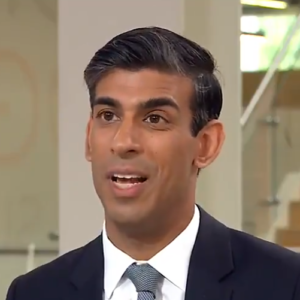The Treasury’s continued penalising of British homeowners seeking to insulate their homes, reputedly among Europe’s leakiest, comes under fire again today from a trade body.
Twenty per cent VAT charged on retrofitting domestic insulation must be slashed to zero, the same level charged on building new homes, the Association for Decentralised Energy (ADE) tells Sunak today, in an open letter signed by 16 members and seven other organisations campaigning against fuel-poverty.
As consumers face energy bills skyrocketing by 54% in advance of May’s local elections, today’s ADE-organised letter claims elimination of the VAT hurdle could be a post-Brexit benefit. The group thus implies their recommendation meet the needs of Sunak’s cabinet colleague Jacob Rees-Mogg. The new Brexit opportunities minister appealed last week for such opportunities when writing in Rupert Murdoch’s ‘Sun’.
Heating buildings currently accounts for an estimated 15% to 20% of total UK carbon emissions. Rapid reductions are needed, the ADE letter notes, to meet national climate targets. They will in turn relieve fuel poverty among Britain’s most vulnerable.
“Control on VAT exemptions were previously limited under EU law, but now the UK has left the European Union it has the freedom to set its own VAT rates”, the ADE asserts.
By 2027, removing the VAT obstacle on mass retrofit can create 42,000 full-time construction jobs, plus 53,000 more jobs in the wider economy, the body calculates. The UK’s green finance sector will also benefit, as consumers are encouraged to take home insulation more seriously.
Lily Frencham, the ADE’s CEO, added: “Zero-rating VAT is a simple incentive to increase private investment.
“It would simplify a complex system and result in a net gain for the UK economy, as well as improving the UK’s housing stock and enabling more families to enjoy warm and healthy homes.
”Ultimately, by failing to act on this, the government is missing a significant opportunity to deliver on net zero compliant buildings, Frencham added”
Sunak is believed to nurse ambitions to lead the Conservative Party, should his boss fall victim to enquiries by Sue Gray and the Metropolitan Police into repeated floutings at 10 Downing Street of lockdown curbs.
Public spending watchdog the National Audit Office, back-bench MPs and house-builders are united in holding Sunak responsible for the Johnson government’s disastrous decision in February 2021 to cancel the Green Homes Grant.
Hastily assembled by D-BEIS and cumbersome in operation for homeowners and builders, the GHG was canned only five months into its intended two-year duration, with only 10% of its £1.5 billion budget spent.
Fewer than 7,000 homes benefitted from the GHG’s insulation retrofitting designed to cut bills for 600,000 households. Parliament’s all-party environmental audit committee was equally scathing; overambitious deadlines set by the Treasury, meant that the scheme was designed to fail to meet its ambitious targets from the outset, chair Philip Dunne judged.
After the failure of the Coalition’s Green Homes Deal in 2015 after two years, the Green Homes Grant was the second time in only six years that a Conservative-led government botched its insulation agenda.
The Conservatives’ acceptance of large donations from property developers is well documented. In June 2021 analysis by Open Democracy of Electoral Commission filings found that developers contributed £17.9 million to the party during the first two years of Alexander Johnson’s leadership. Using data filed with the same source, the Financial Times reported last year that up to a quarter of Conservative funding comes from property companies.




